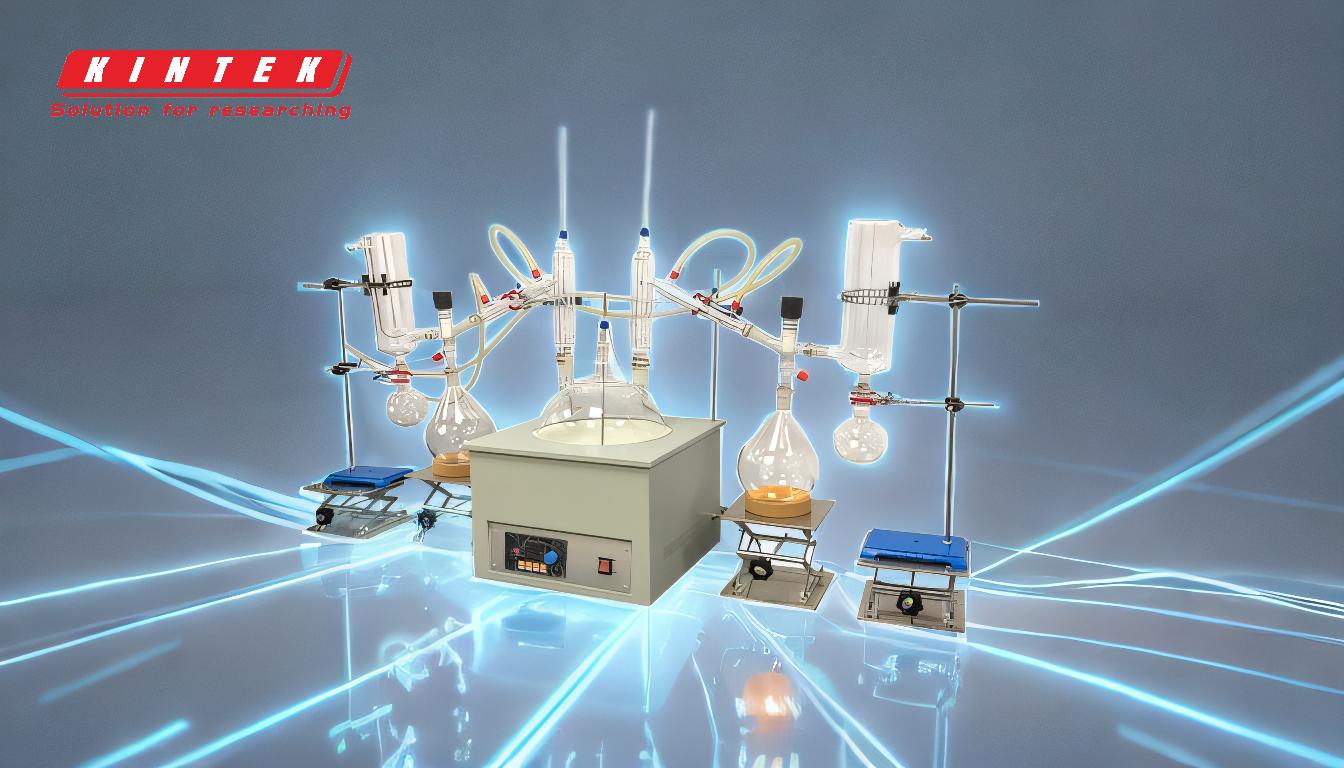Distillation is a highly effective method for separating volatile compounds based on their differing boiling points and volatility. By heating a mixture, the more volatile components vaporize first, and upon cooling, they condense into a purified form. This process is widely used in laboratories, industries, and even household applications to isolate and purify substances. The key to successful distillation lies in exploiting the differences in volatility between components, allowing for the separation of compounds that would otherwise be difficult to isolate.
Key Points Explained:

-
Definition and Purpose of Distillation:
- Distillation is a separation technique that purifies compounds by leveraging their volatility.
- Its primary goal is to isolate desired substances from a mixture by heating, vaporizing, and condensing them.
-
How Distillation Works:
- A mixture is heated to a specific temperature where the more volatile compound(s) vaporize.
- The vapor is then cooled and condensed back into a liquid, resulting in a purified form of the volatile compound.
- This process is repeated for compounds with different boiling points to achieve complete separation.
-
Role of Volatility in Distillation:
- Volatility refers to a substance's tendency to vaporize at a given temperature.
- Compounds with lower boiling points (higher volatility) vaporize first, making them easier to separate from less volatile components.
-
Types of Distillation:
- Simple Distillation: Used for separating liquids with significantly different boiling points.
- Fractional Distillation: Employed for mixtures with closer boiling points, using a fractionating column to enhance separation.
- Short-Path Distillation: Ideal for heat-sensitive compounds, as it minimizes exposure to high temperatures.
-
Applications of Distillation:
- Chemical Labs: Purifying solvents and reagents.
- Industrial Factories: Producing fuels, alcohols, and essential oils.
- Household Uses: Distilling water or creating homemade spirits.
-
Advantages of Distillation:
- High purity of separated compounds.
- Scalability for both small-scale and industrial applications.
- Ability to separate heat-sensitive compounds with specialized methods.
-
Limitations of Distillation:
- Requires significant energy input for heating and cooling.
- Not suitable for separating compounds with very similar boiling points without advanced techniques.
- Potential degradation of heat-sensitive compounds if not handled properly.
In summary, distillation is a versatile and effective method for separating volatile compounds, relying on differences in boiling points and volatility. Its applications span across various fields, making it a cornerstone of purification processes. However, it is essential to consider the specific requirements of the mixture and the compounds involved to choose the appropriate distillation technique.
Summary Table:
| Aspect | Details |
|---|---|
| Definition | Separation technique that purifies compounds by leveraging volatility. |
| Process | Heat mixture → vaporize volatile compounds → cool and condense into purified form. |
| Types | Simple, Fractional, Short-Path Distillation. |
| Applications | Chemical labs, industrial factories, household uses. |
| Advantages | High purity, scalability, ability to handle heat-sensitive compounds. |
| Limitations | High energy use, challenges with similar boiling points, potential compound degradation. |
Discover how distillation can optimize your purification process—contact our experts today!









